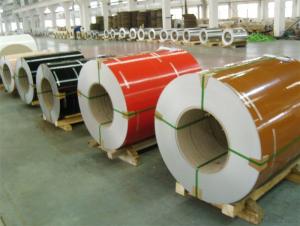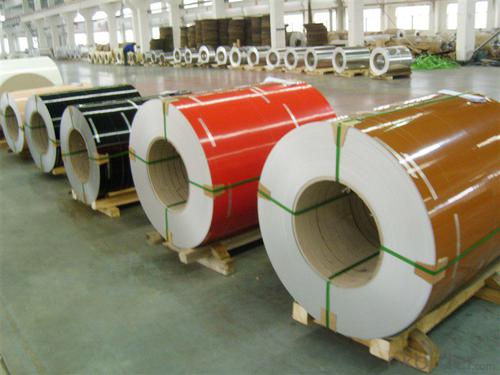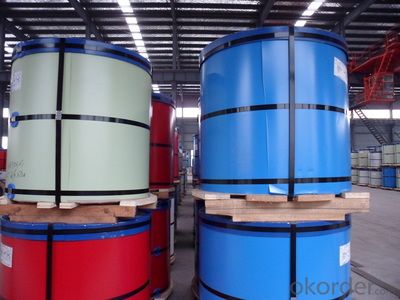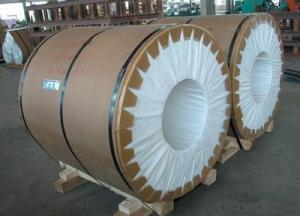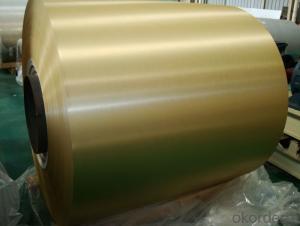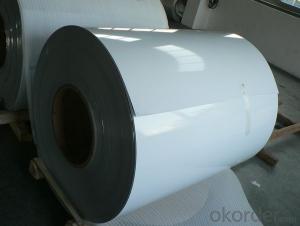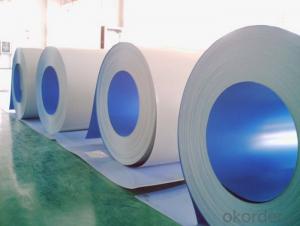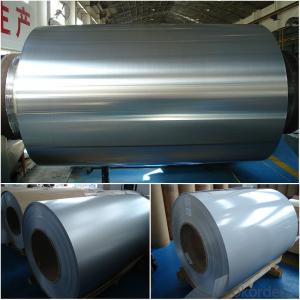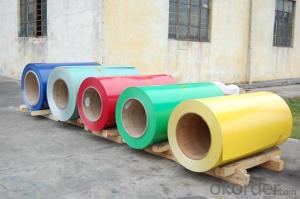Aluminum Coil Size Color Coated Aluminium Coils for Indoor Metal Wall ACP
- Loading Port:
- Shanghai
- Payment Terms:
- TT OR LC
- Min Order Qty:
- 5 m.t.
- Supply Capability:
- 10000 m.t./month
OKorder Service Pledge
OKorder Financial Service
You Might Also Like
Specification
1. Structure of Color Coated Aluminium Coils for Indoor Metal Wall ACP Description
• Product: Aluminim coils
• Application:
corrugated roofs, outer walls, ovens, electrically controlled cabinets.
household appliances, transportation, base plate, color coating.
industrial freezers in the residential and industrial buildings.
refrigerator backplane, gas stove, air conditioner, microwave, LCD border.
• Advantage: Full production line with all kinds of coils supply
2. Main Features of the Color Coated Aluminium Coils for Indoor Metal Wall ACP
• Our goods quality is top, the surface is smooth, and every steel coil
• No Joint, No Bends, no spots, no roller marks.
• MTC will be provided with goods, third part inspection is acceptable, for example, SGS, BV. Etc
3. Color Coated Aluminium Coils for Indoor Metal Wall ACP Images
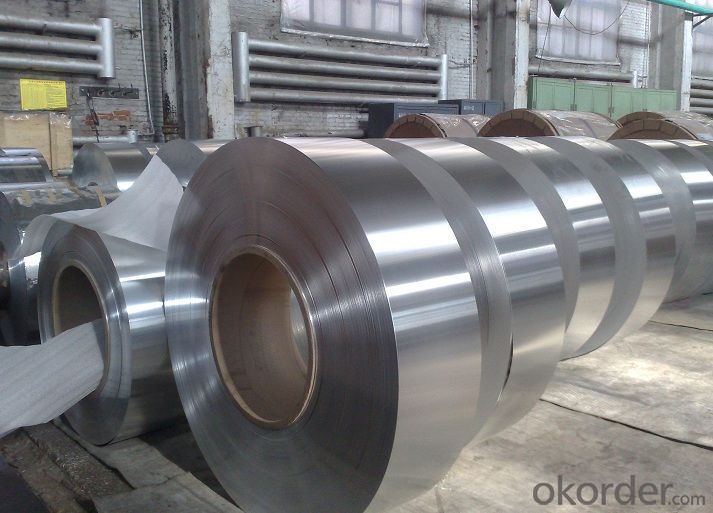
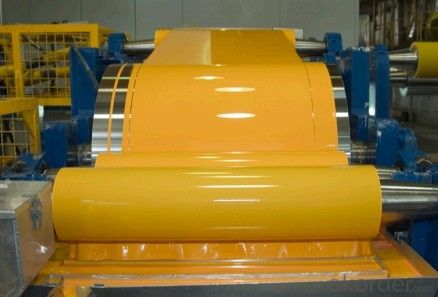
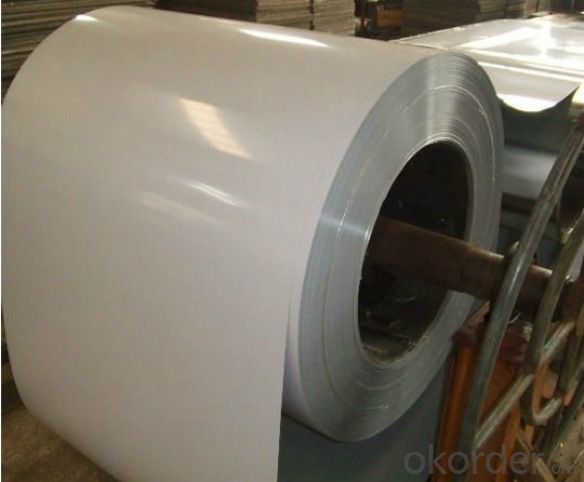
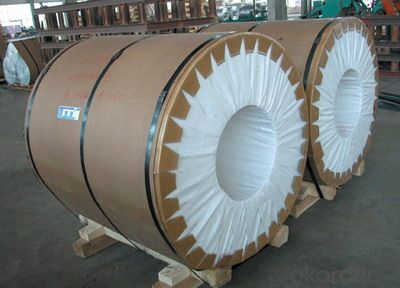
4. Color Coated Aluminium Coils for Indoor Metal Wall ACP Specification
Alloy | AA1050/1100/3003/3005/3105/5005/5052 etc |
Thickness | 0.03mm—4.0mm |
Width | 10mm—1600mm |
Coating | PVDF, PE |
Coatingthickness | Usually16-25 micron, could be 33-40 micron |
Color | According to Ral |
Standard | ASTM-B 209 GB/3008-2006 |
Usage/ApplicationsCoated Aluminum Coil/Sheet | Constructionand decoration, electronic appliances, lighting decoration, air-condition airpipe, sandwich panels and drainage, etc |
5.FAQ of Color Coated Aluminium Coils for Indoor Metal Wall ACP
We have organized several common questions for our clients,may help you sincerely:
① How about your company?
A world class manufacturer & supplier of aluminum coil and alloy blanks. Aluminum production base is comprised of 18 aluminum annealers, 10 coil and foil mills, 4 continuous production lines, 2 hot rolling production line and 3 prepainted lines.
Export 5000 tons per month to Asia, America and Middle East. Always do the best for our clients.
②Can you guarantee the quality of the products?
We are responsible for the quality of materials to get a long-term cooperation with clients in a reasonable period of time and we are glad to arrange and coordinate any third party inspection for you.
③What is the delivery time after purchase?
35 day after receiving client’s deposit or correct LC
- Q: This question asks for methods to determine the age of an aluminum coil, distinguishing between new and old.
- <p>To determine if an aluminum coil is new or old, you can look for several indicators: the surface condition, such as scratches or signs of wear; the quality of the protective coating, if any, which may degrade over time; the manufacturing date or batch number, if available; and the overall appearance and shine. New coils typically have a smooth, shiny surface with no significant scratches or dents, and a consistent protective coating. Old coils may show signs of oxidation, discoloration, or other forms of degradation. Additionally, testing the coil's physical properties, such as tensile strength, can provide clues about its age, as these properties can degrade over time.</p>
- Q: Can aluminum coils be used in marine or saltwater environments?
- Yes, aluminum coils can be used in marine or saltwater environments. Aluminum is highly resistant to corrosion, making it a suitable choice for applications in saltwater environments.
- Q: Can aluminum coils be used in aerospace applications?
- Yes, aluminum coils can be used in aerospace applications. Aluminum is a lightweight and durable material that offers excellent heat conductivity and corrosion resistance, making it suitable for various aerospace components like heat exchangers, condensers, and cooling systems. Its versatility and strength-to-weight ratio make aluminum coils a popular choice in the aerospace industry.
- Q: Can aluminum coils be used in the production of solar panels?
- Aluminum coils are indeed suitable for the production of solar panels. Being a lightweight and durable material, aluminum brings numerous advantages to the manufacturing process. Its high conductivity and exceptional thermal properties enable efficient dissipation of heat. Furthermore, aluminum exhibits resistance to corrosion, a vital characteristic for solar panels as they encounter diverse weather conditions. Moreover, the cost-effectiveness of aluminum makes it a favored option in the solar industry. By employing aluminum coils in solar panel production, the performance, durability, and cost-effectiveness of these panels are greatly improved.
- Q: What are the insulation options available for aluminum coils?
- There are several insulation options available for aluminum coils, depending on the specific requirements and applications. Some common insulation options include: 1. Foam Insulation: Foam insulation is a popular choice for aluminum coils as it provides excellent thermal insulation properties. It is available in various forms, such as rigid foam boards or flexible foam sheets, and can be easily cut and fitted around the coils. 2. Fiberglass Insulation: Fiberglass insulation is another commonly used option for aluminum coil insulation. It consists of thin glass fibers that are woven together to create a blanket-like material. Fiberglass insulation is lightweight, easy to install, and offers good thermal and acoustic insulation. 3. Mineral Wool Insulation: Mineral wool insulation is made from natural or synthetic minerals, such as rock or slag, that are melted and spun into fine fibers. It is known for its excellent fire-resistance properties and provides effective thermal insulation for aluminum coils. 4. Reflective Insulation: Reflective insulation is designed to reflect radiant heat away from the aluminum coils. It typically consists of a layer of aluminum foil laminated to a layer of fiberglass or plastic bubble wrap. Reflective insulation is particularly effective in warmer climates where reducing heat gain is a priority. 5. Vapor Barrier Insulation: Vapor barrier insulation is used to prevent the transfer of moisture through the insulation material. It is often applied as a coating or film over the insulation to create a barrier against water vapor, reducing the risk of condensation buildup on the aluminum coils. It is important to consider factors such as thermal conductivity, fire resistance, moisture resistance, and installation requirements when selecting the appropriate insulation option for aluminum coils. Consulting with a professional or referring to manufacturer guidelines can help in determining the most suitable insulation option for specific coil applications.
- Q: How are aluminum coils processed and fabricated?
- Aluminum coils are processed and fabricated through a series of steps to shape them into desired forms for various applications. The process typically involves the following steps: 1. Coil Manufacturing: Aluminum coils are initially manufactured by melting aluminum ingots and casting them into large, flat coils. These coils are then rolled through a series of rolling mills to achieve the desired thickness and shape. 2. Coil Cleaning: Once the coils are rolled, they undergo a cleaning process to remove any dirt, oil, or other impurities that may have accumulated during manufacturing. This is typically done using chemical cleaning agents or mechanical scrubbing techniques. 3. Coil Annealing: Annealing is a heat treatment process where the coils are heated to a specific temperature and then slowly cooled. This process helps to relieve internal stresses, improve the coil's mechanical properties, and enhance its formability. 4. Coil Slitting: In this step, the large coils are cut into narrower strips or sheets of desired widths. This is done using a slitting machine, which can cut multiple strips simultaneously. Slitting allows for better utilization of the material and ensures that the coils are in the required dimensions for further processing. 5. Coil Surface Treatment: Aluminum coils often undergo surface treatments to enhance their appearance, improve corrosion resistance, or provide additional protection. Common surface treatments include anodizing, painting, or applying a protective coating. 6. Coil Fabrication: Once the coils are cleaned, annealed, and treated, they can be further processed into various shapes and forms. Common fabrication techniques include stamping, bending, deep drawing, roll forming, welding, and machining. These processes allow the aluminum coils to be transformed into components such as sheets, plates, tubes, profiles, or intricate designs. 7. Quality Control: Throughout the entire processing and fabrication stages, strict quality control measures are implemented to ensure that the final products meet the required specifications and standards. This involves regular inspections, testing for mechanical properties, dimensional accuracy, surface quality, and other relevant parameters. Overall, the processing and fabrication of aluminum coils involve a combination of metallurgical, mechanical, and chemical processes to achieve the desired final product. These processes aim to enhance the properties of the aluminum, improve its formability, and create a wide range of products for various industries such as automotive, construction, aerospace, and packaging.
- Q: Can aluminum foil coil be stores for a long time?
- It is ok within one or two years, but for five or six years, it will be oxidized.
- Q: Classification of aluminium rolls for aluminium rolls
- The utility model has the advantages of good usability, good interface characteristics, easy coating and good processability. It can be used on low pressure weapons and aircraft joints.6061 general features: excellent interface features, easy coating, high strength, good usability, strong corrosion resistance.Typical use: 6061 aluminum aircraft parts, camera parts, couplers, ship accessories and hardware, electronic accessories and fittings, decoration or various hardware, hinge head, head, brake piston, hydraulic piston, valve and valve parts, electrical accessories.
- Q: This question asks about the distinctions among various grades of aluminum coils, likely referring to their properties and uses.
- <p>Aluminum coils are differentiated by grades based on their alloy composition, thickness, and specific applications. Common grades include 1000 series (99% pure aluminum, soft and malleable), 3000 series (aluminum-manganese alloys, good for cooking utensils), 5000 series (aluminum-magnesium alloys, used in marine applications), and 6000 series (aluminum-magnesium-silicate alloys, known for strength and used in construction). Each grade has distinct properties such as strength, formability, and corrosion resistance, which determine their suitability for different industries and applications.</p>
- Q: Explain the distinctions among various types of aluminum coils, including their properties and applications.
- <p>Aluminum coils are differentiated based on their alloy composition, thickness, temper, and surface finish. Common types include 1000 series coils, which are pure aluminum with high ductility but low strength; 3000 series, known for their formability and used in cookware; 5000 series, which are non-heat-treatable and corrosion-resistant; and 6000 series, offering a balance of strength and corrosion resistance. Thickness varies from thin gauges for flexible applications to thick gauges for structural use. Tempers range from soft (O temper) to fully hard (H temper), affecting the coil's hardness and strength. Surface finishes can be plain, coated, or embossed, impacting aesthetics and performance. Each type is chosen based on specific industry requirements like construction, automotive, or packaging.</p>
Send your message to us
Aluminum Coil Size Color Coated Aluminium Coils for Indoor Metal Wall ACP
- Loading Port:
- Shanghai
- Payment Terms:
- TT OR LC
- Min Order Qty:
- 5 m.t.
- Supply Capability:
- 10000 m.t./month
OKorder Service Pledge
OKorder Financial Service
Similar products
Hot products
Hot Searches
Related keywords
